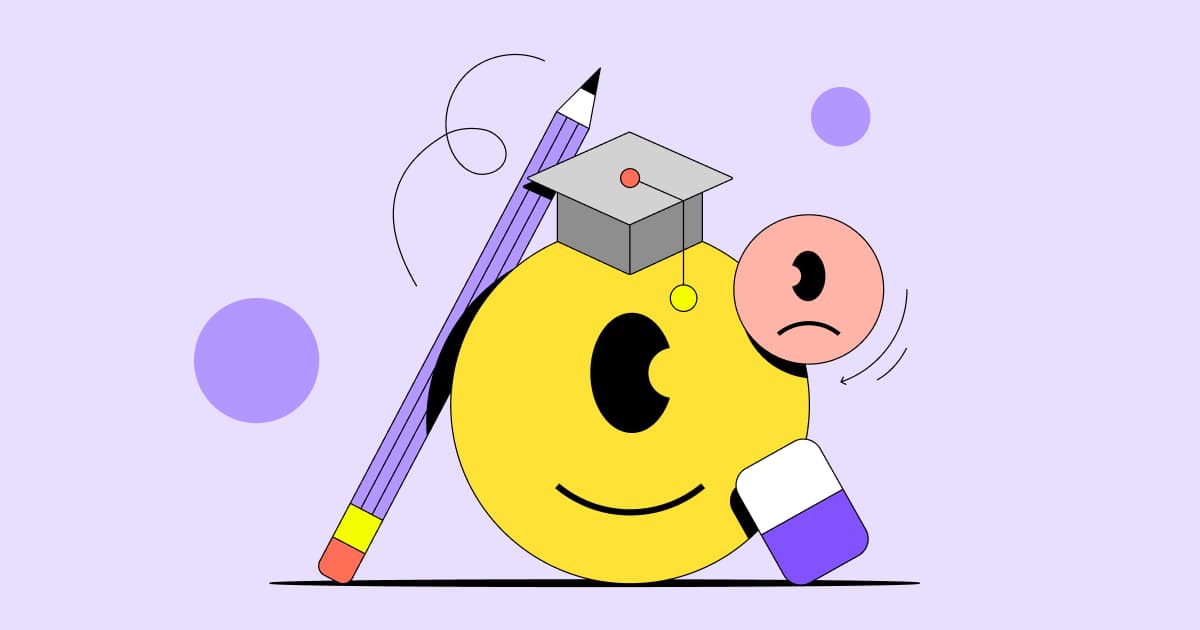For many young adults, college is one of the most essential parts of their life. It is the first time they are away from their family’s nest, experiencing more freedom than ever. It also is the time to learn lots about a topic you think you could fall in love with and make new friendships.
However, as much personal growth as that brings, experiencing these fantastic things can be challenging. As long as you crave more independence, a parent’s aged advice is still much welcome, and so is having them closer.
And while deepening your understanding of your alma mater and connecting with new people is beautiful, the academic stress is real. So is the one of forming new relations from almost scratch. Plus, it might take you some time to learn how to manage your finances while adulting.
Still, it’s essential to remember that the underlying tone of college is one of growth, joy, and wonders — that, at its core, it’s a fantastic and important time. And that investing in your mental health throughout it is the best thing you can do to live a better life on campus and set the foundations for your happiness after you graduate.
And you can do that — you could start here with the mental health tips for college students we share below. Some of us on the Pawns team have used some of these throughout our college journeys, so treat yourself. 🙂
The Impact of Mental Health on Academic Performance
Sometimes — or more precisely, very often — the challenges we briefly touched on press hard. Sometimes, you just need friendly talk and an understanding environment. Other times, the emotions, thoughts, and behaviors these hardships stimulate can develop into mild to severe mental conditions. Still, it is often not the condition itself that can damage the quality of life of college students but not dealing with it properly.
It is one thing to struggle with feeling bad psychologically and a completely different one to let it simmer or “deal” with it in unhealthy, unsuitable ways. The college population is very vulnerable to mental health concerns, which makes mental health awareness essential.
And although there’s less stigma around some problems like anxiety and depression, students are still uncomfortable about opening up about some other conditions. Still, there are strategies to deal with this discomfort, and doing so can help you avoid problems with your academic performance and overall college experience.
Mental struggles can impact everyone differently. For some students, not feeling well mentally can lead to a GPA they’re not keen on or even dropping out of college. Others might be the best students in their class and still struggle with their internal world.
And the latter could set you on a cruise to compromise your happiness and important aspects of yourself to function — a sad thing to see your beautiful young self going through. So, there must be hope, right?
Mental Health Challenges College Students Face
There is always hope. 🙂 BUT more importantly, there are many different ways to manage stress and mental health issues, meaning there are things to do about it. Which conditions do college students most often experience, though?
Depression
Well, one of them is depression, a condition that comes with symptoms such as a loss or decrease in interest or pleasure in stuff previously enjoyed, a lack of energy, hopelessness, and worthlessness. In the case of depressed students, it can happen that they’re having difficulties completing assignments or participating in activities.
Anxiety
Another condition is anxiety, with symptoms like intrusive thoughts, concerns, worrying, avoiding situations out of worry and fear, and those that are more physical, such as trembling, sweating, dizziness, or a rapid heartbeat.
Eating Disorders
Some students can also develop eating disorders. These include anorexia nervosa, bulimia nervosa, binge-eating disorder, etc. They are all pathological behaviors or attitudes toward food or the effects you think food has on you.
Addiction
Addiction is also present among the college population. Some become physically and/or psychologically dependent on alcohol, drugs, cigarettes, and substances not to feel the stress of their life. Others become addicted to experiences not aligned with their dreams and ideals.
Suicide
Sorrowful beyond all imagination, students at college are also at high risk of suicide, ending their lives in their very bloom. If you or someone you know is feeling suicidal, please know that there is someone who will calmly listen to the loud pain that hurts deeply. Please know that there is someone who will talk back to it gently, full of understanding and support. Know that there is someone willing to sit together in the darkness — no matter how dark — and try to embrace it together, but this time, with a breath of fresh air and a new perspective. Please don’t give up. If you or someone else is thinking about suicide, call a local suicide prevention hotline.
Mental Health Tips for Students
Hitting bumps on your road to education and personal growth is natural and normal. And it’s okay if this bump is bumping back at you because you can re-bump it back. Gently, however, because it is just parts of you playing the bumpy game, and you deserve a friend like yourself. So, what can you do if you’re not feeling alright or something is bothering you? Here are some mental health awareness tips you could try:
1. Do Some Journaling
When your feelings start piling up, it’s time to unwind. And what better way to do that than writing or voice-recording your thoughts and inner conversations? Keeping a journal is one of the best self-care tips anyone can give you — it’s a perfect means of staying in touch with all the beauty and turbulence going on inside you.
The more voice you give your emotions, the clearer you become to yourself; sometimes, we think we know what’s going on until we sit down to say/write it. Then, we start noticing the causes of our actions, patterns become sharper, and the anxiety disorder feels less stressful.
2. Practice Gratitude, Mindfulness, and Meditation
Many college students have worries about the future and seek comfort in memories free from academic stress. However, it is when we focus on the present moment and are aware of our feelings, thoughts, and emotions that we give the vibrant now a chance and invest in our mental wellbeing.
Being mindful right here right now is achievable through meditating and practicing gratitude. The first one can help you be more patient, tolerant, and self-aware, and help you manage stress and improve certain mental health conditions like anxiety.
If you’re a newbie at this, there are many meditation apps to ease your journey. And to practice mindfulness with gratitude exercises, you can keep a gratitude journal or write self-affirmation thoughts — it can help you feel more joyful, improve your relationships, and even boost your immune system.
3. Keep to a Routine
Kids tend to keep to a specific daily routine throughout the school year. They wake up, eat, go to classes, and once school is over, it’s time for the extracurricular activities, homework, and then it’s bedtime. And having an organized lifestyle is very beneficial — it helps you focus and be more productive.
Apart from that, keeping to a repetitive schedule is great for staying on top of things and managing stress. It’s great to have things planned and know when to focus on what.
4. Take Care of Your Body
Minding your physical health is essential for your mental one; they’re interconnected. Everything matters, from drinking enough water (about 2L for women and 3L for men) to getting enough sleep at night (7-9 hours is enough sleep time). Simple things like these can improve your daytime concentration, boost your academic performance, improve your overall functional capacity, lower the risk of diseases, and decrease anxiety and depression.
Exercising also matters — getting at least 2.5 hours of it a week should be enough to boost your happiness level, and it’s something you can do for free. Finally, taking care of your food and enjoying nutritious meals is excellent for improving your attention span, thinking clearly, and reducing the risk of inflammation and mood disorders.
5. Explore Creative Outlets
Making art doesn’t require perfect skills or talent — it’s a gift for the human soul. It’s one way to let your emotions flow through you and get a creative form. All that’s loud inside can have its word on a piece of paper, in between the lines of a scribble, in a song, or the folds of a clay pot.
If you take the time to do it long enough, being creative can also become your new hobby. It’s one of those activities that promote relaxation and give one a sense of purpose, so it’s a pleasurable thing to get hooked on.
6. Find Your Social Circle
College students can sometimes spend too long slouching over textbooks, forgetting about the importance of socialization. Spending enough time with your old friends during college-ing, which is a period of changes, promotes happiness and buffers the effects of stress. Likewise, forming new friendships on and off campus helps you find a supportive community.
And while learning how to be independent is one of the hallmark experiences of going to college, feeling accepted and challenged by like-minded people is equally important. They can give you invaluable advice, a sense that you’re not alone on your boat when feeling overwhelmed, or a good laugh when just hanging out.
7. Experiment Out of Your Comfort Zone
We often start feeling sad when we stop doing new things. Getting too comfortable and used to the same old is not going to bring you the happiness you deserve. Life constantly flows, and so do you — that’s the way it is. You’re not a constant but an ever-expanding miracle of nature.
Of course, taking a break from change is sometimes essential; as much as we’re constantly evolving, we do need consistency. However, staying in the old because the new feels too uncomfortable to explore is not the answer. In such a case, a good thing to do is to gently look into the reasons for that and potentially do so with a therapist.
8. Tend to Your Financial Habits
For many students, college is the first time they’re managing finances, and that can be stressful. If you feel like your psychological well-being is being impacted by the overwhelming effects of fiddling with money on your own, here are some valuable tips that could help you learn this skill easier:
- Learn how to budget by creating a budget plan.
- Make it a habit to pay your bills on time (the auto-pay option is excellent).
- Invest in your emergency fund to have yourself covered if rainy days strike.
- Start paying off your student loan sooner to be done with that faster, even if you’re making small payments.
- Apply for scholarships whenever you can to reduce college expenses.
- Look for additional support on campus through the student services office or your school’s financial aid.
- Get a credit card, but use it responsibly, paying off your entire balance every month.
9. Use Mental Health Resources on Campus
Often, college students feel more comfortable when they can discuss their concerns with a professional with a background in mental health aid. If you feel like you’d like to get such mental health support, we are glad you’re considering this option.
You could check if your school offers free or affordable counseling sessions (these are usually available through the university counseling centers) or has a wellness program going on. Alternatively, you could reach out to your dorm’s Resident Advisor if, of course, you have one. Finally, if you feel like your current situation is affecting your schoolwork, don’t hesitate to talk to your professors to figure things out as you’re working on yourself. As always, we believe in you. 🙂
Feel Better While Learning & Earning!
Life is a constant motion, and sometimes — and in fact, very often — friction happens. Sadness happens. Depression and anxiety happen. Other mental health issues happen, too. And that’s all okay. Because as long as we’re all investing in our mental health awareness and gathering the courage to face our problems, happiness also happens. So, take care of yourself, keep earning with Pawns.app, and we’ll see you next time!


